Trying to decide on the best dash cam for you can be a tricky process. Not only are there several different kinds – from mini dash cams to front-and-rear options and even dash cam mirrors – there are a surprising array of features too, including sensors, parking modes and different video resolutions.
It's not surprising, then, that many buyers look to keep things simple with a mini dash cam. These are ideal if you don't have much space to play with and they also tend to be cheaper than their more fully-fledged counterparts. But what are the downsides and drawbacks of these smaller dash cams? And which are the best ones out there? We've put together this guide to help you decide.
What is a mini dash cam?
The mini dash cam is a smaller and more compact version of a standard in-car camera, which takes up less space and is usually less obtrusive, too. Some of the more conventional dash cam models can be rather bulky and aren’t always as appealing to drivers with confined cockpits to contend with. A mini dash cam is just the opposite.
While any dash cam must be mounted so that it doesn’t interfere with your driving or obstruct your view through the windshield, the benefit of a mini dash cam means there’s even less to worry about.
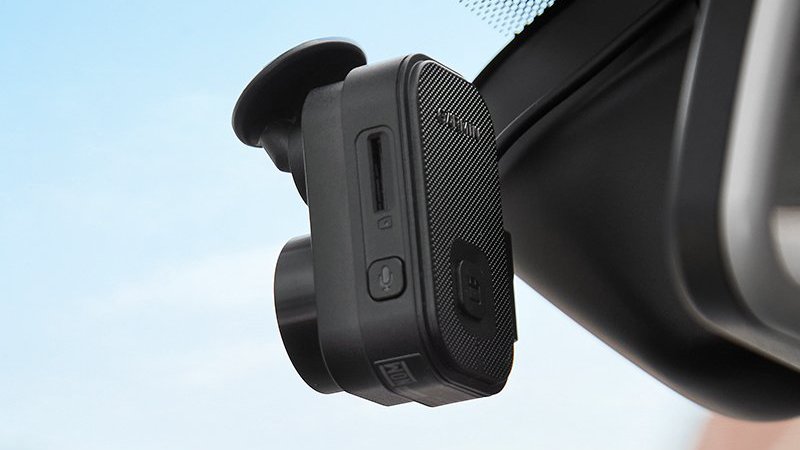
Whichever model you choose, they mount in the same way are larger dash cams, usually using a self-adhesive pad or a suction mount. The smaller dimensions of a mini dash cam means they can also hide away neatly behind your rear-view mirror.
But there are naturally some downsides. From a lack of bundled accessories and features to the absence of a display, you'll need to weigh up whether that added convenience is worth the limitations of mini dash cams.
What are the downsides of mini dash cams?
Most mini dash cams have enough features and power for the average driver, but their smaller designs do bring some compromises. Overall, there are three main drawbacks to be aware of.
Firstly, there's the common lack of a rear screen. Some models do have one (like the Garmin Dash Cam 67W below), but the chances are it’ll be a little on the small side. Luckily, this isn't an issue for most drivers, as they won't need to review footage on the device itself. Instead, there's invariably a companion app that offers the ability to view footage on your smartphone, as well as set up the dash cam. This will likely prove to be a more enjoyable experience in the long run.
A bigger limitation of mini dash cams is often their video quality. Because their lenses have been shoehorned into a smaller space, you may experience a degree of fisheye distortion from the resulting video footage. If the camera has a less impressive resolution (another common limitation of small dash cams), then this could combine with the distortion to make it harder to make out details in your videos.
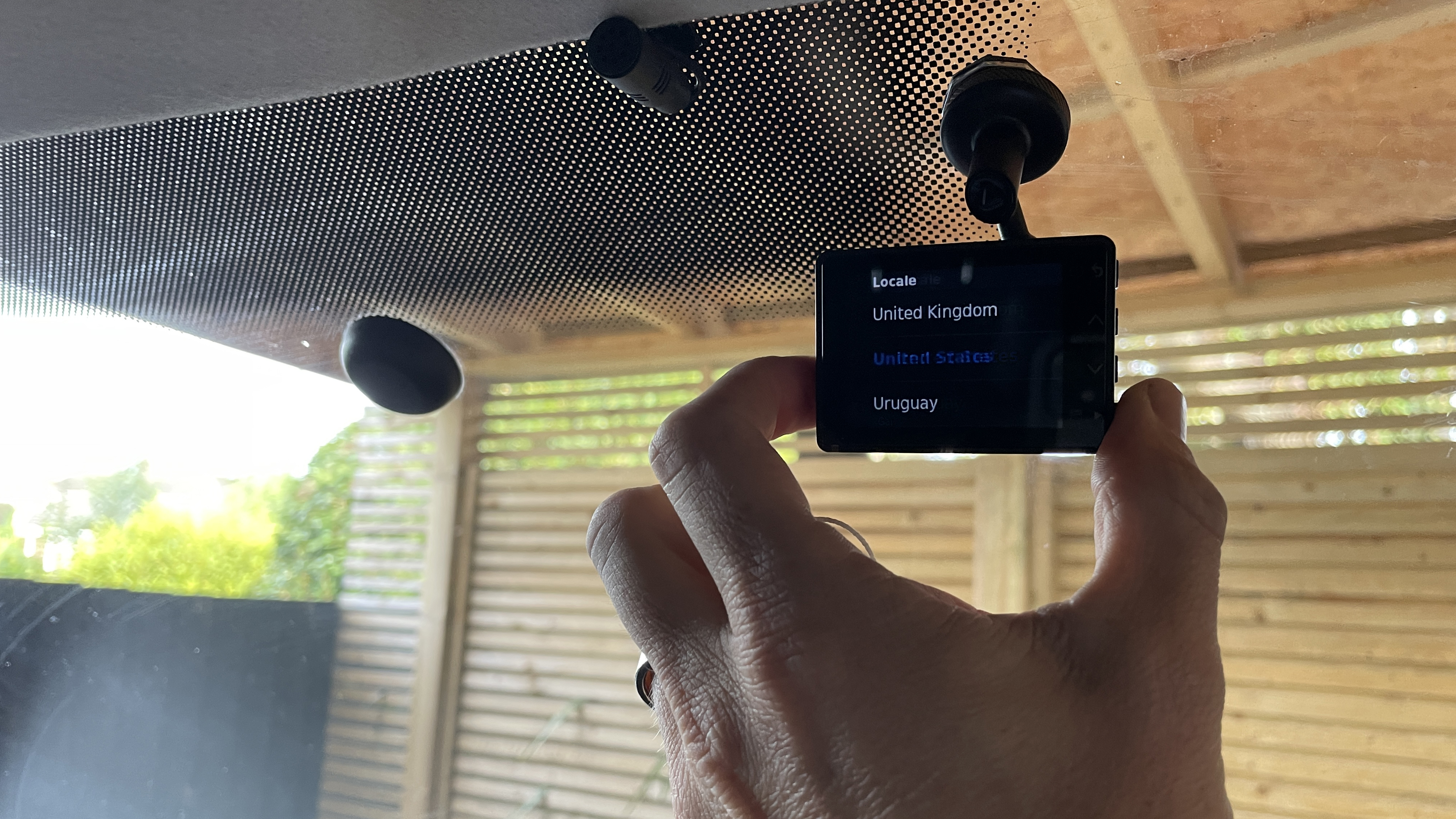
That said, an HDR (High Dynamic Range) mode can help compensate in harsh daytime sunshine, as can buying a cheap polarizing filter to cut out glare. Both of these are possible on mini dash cams and this can have as big an impact on image quality as resolution and lens quality. Ultimately, the better quality the footage, the greater the chance you'll be able to use it in an insurance claim.
A third drawback is usually a lack of features, compared to larger dash cams. For example, our top choice – the Garmin Mini Dash Cam Mini 2 – doesn't come with GPS (so can't track your vehicle's speed), a hard-wiring kit or even a microSD card. That said, you can sync it with a Garmin dash cam that has GPS, via the Drive app.
Not all mini dash cams lack GPS either – a good middle-ground option is the Garmin Dash Cam 67W, which has 1440p video recording, wide 180-degree field of view, GPS and voice control, as well as a 2-inch LCD screen. There are even lane departure and forward collision warnings, too.
So, if you’ve been looking at standard-sized dash cams and think they’re too big and bulky, searching for a mini dash cam could be the way forwards. This is especially the case if you drive a sports car with a small windscreen area. As we've discovered, there are a few compromises to be had in terms of performance and features, but if space-saving is the main consideration, then a mini dash cam makes perfect sense.
What are the best mini dash cams?

If you need a basic dash cam that just does the fundamentals and hides away discreetly behind your rear-view mirror, then the Dash Cam Mini 2 is our current top choice.
It’s small, with dimensions of just 3.1 x 2.9 x 5.3 cm, and weighs in at just 35g. But it still comes with most of the features and functionality you’ll need for monitoring the road ahead. There’s a 140-degree field of view and the video quality, while only 1080p resolution, is very good for its size.
Voice control also comes as part of the package, which is a nice bonus, though GPS is missing. If you want the Dash Cam Mini 2 to record videos while you're parked, it's also worth noting that you'll need an always-on 12V cable or Garmin's Constant Power Cable (which isn't included). But the Garmin Drive app, where f is very polished, and this is an important part of the experience with mini dash cams.
- Read our in-depth Garmin Dash Cam Mini 2 review
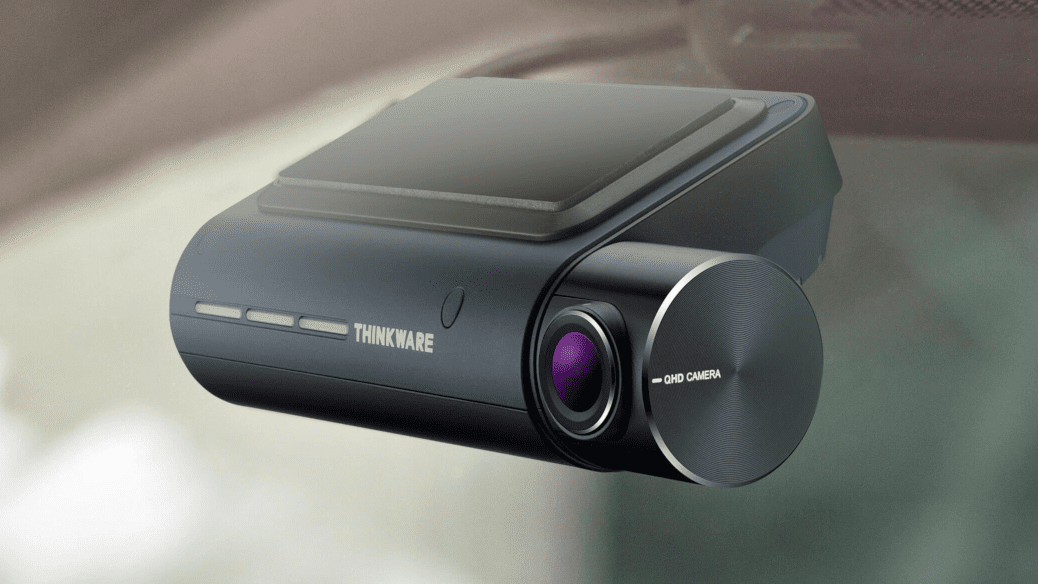
Another slender dash cam worth investigating is the Thinkware F800 Pro. It's quite pricey, but comes packed with clever features – and also offers a front-and-rear bundle, which means you’ll be covered in case of a shunt from behind.
The feature set is strong, with a stick-on low-profile design, GPS tracking and good-quality HD footage. Wi-Fi connectivity means you can hook up your smartphone to the unit, plus you get the benefit of a night mode for more effective recording after dark.
You’ll need to hard-wire the camera into your car if you want to make use of its neat Time Lapse Mode though, which keeps a watchful eye on your car when you’re not in it overnight.
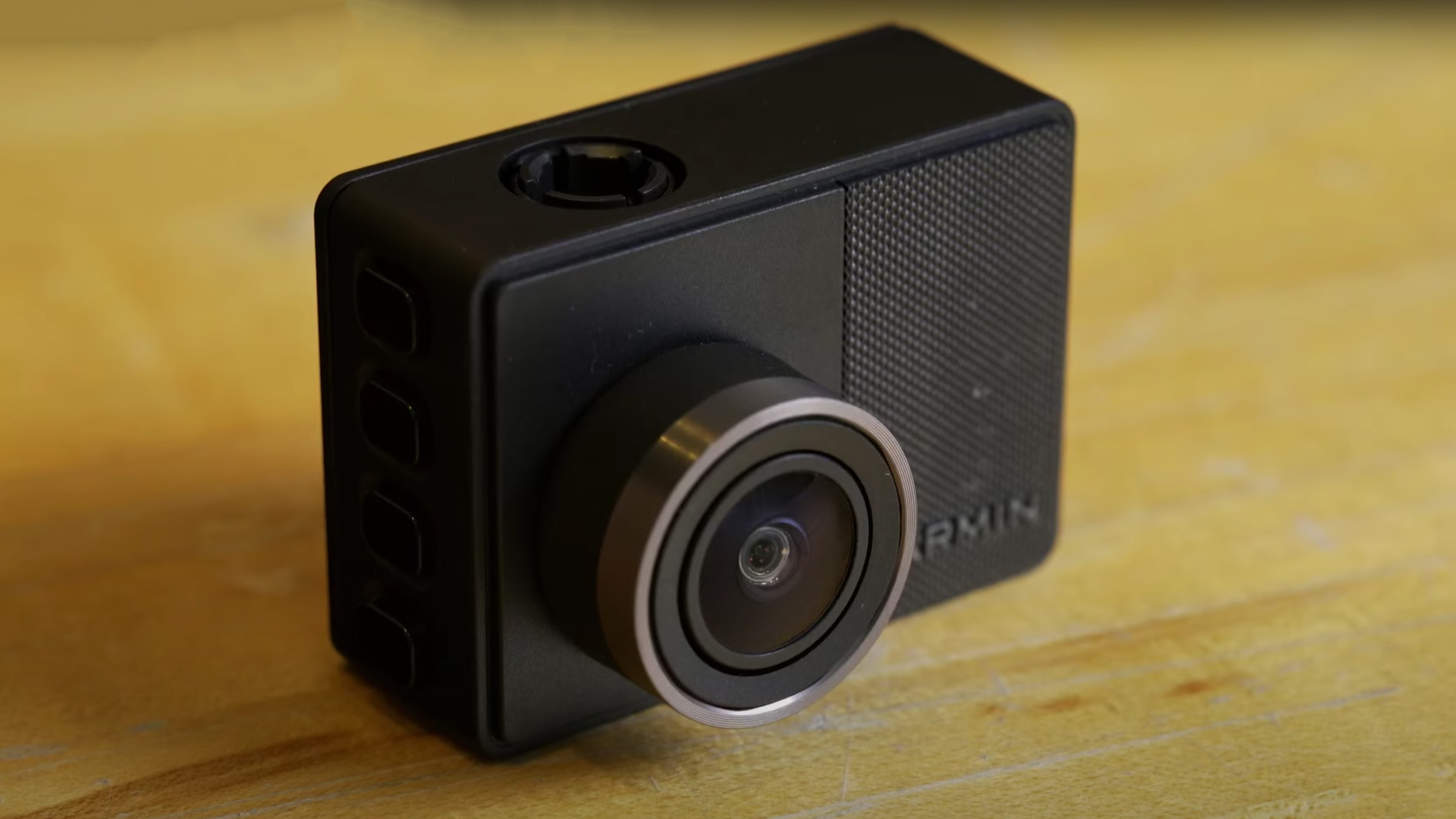
It isn't quite as compact as Garmin's Dash Cam Mini 2, but the 67W is still only about the size of a matchbox – and it offers a few more features for that higher price tag.
The main difference from Garmin's other compact dash cams is the wide 180-degree field of view (hence the 'W' in its name). This causes some fish-eye distortion, but it's useful if you have a larger car or want a dash cam that can see right the way around the front of your vehicle.
The sensor's 1440p footage is crisp, while an HDR (High Dynamic Range) function makes sure the footage remains high-quality even in tricky lighting conditions. That extra resolution over the Dash Cam Mini 2 can also be handy for punching into footage to pick out details like license plates.
Some features, like the ability to check in your parked car remotely, demand that the 67W is hard-wired into your car and connected to a Wi-Fi network. But if you want high-quality footage with a wide angle of view, this a great mini dash cam.
- Read our in-depth Garmin Dash Cam 67W review
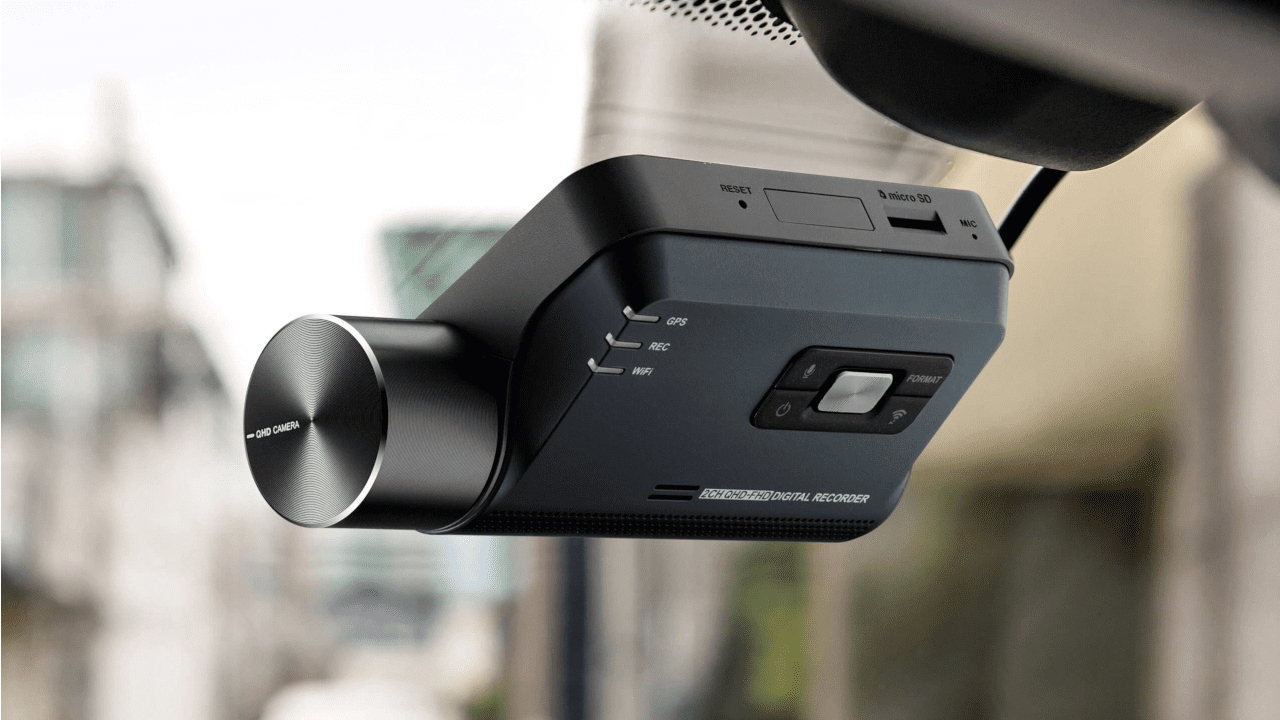
A powerful, compact front-and-rear dash cam bundle is the Thinkware Q800 Pro. This one packs 2K 1440p shooting quality, GPS speed and location logging plus a Super Night Vision feature.
There’s a Sony Exmore R Starvis image sensor so the quality is excellent. Expandable up to 128GB, there’s an included 32GB microSD card along with access to the Thinkware Cloud for quick and easy backups.
While Thinkware doesn’t always win everyone over with its supplementary app, once you’re up and running the image quality and feature set is impressive. You’ll get the best from this one by getting it hard wired in, too.
from TechRadar - All the latest technology news https://ift.tt/S1f3vyK
Aucun commentaire: